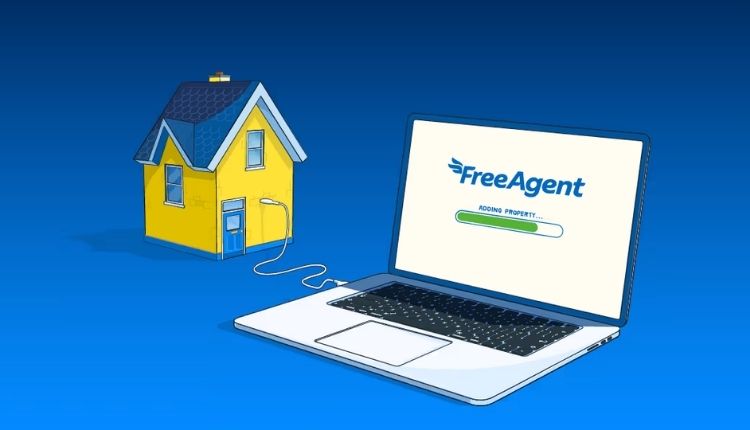Making Tax Digital for Landlords: Turning Compliance into Opportunity
Landlords across the United Kingdom are facing a new reality in tax compliance. Making Tax Digital (MTD), HM Revenue & Customs’ ambitious programme to modernise tax administration, is transforming how rental income is recorded, reported, and managed. From April 2026, landlords with rental income over £10,000 per year must adopt digital accounting systems and submit quarterly updates to HMRC. While compliance is mandatory, MTD offers opportunities for efficiency, insight, and better property management.
What MTD Means for Landlords
Making Tax Digital represents a fundamental shift from paper-based accounting to digital record-keeping. For landlords, this means maintaining accurate, up-to-date records of rent, expenses, and other property-related financial activity in software that can communicate directly with HMRC.
The objectives are clear: improve accuracy, reduce errors, and make tax reporting more efficient. While MTD for income initially applied to VAT-registered businesses, the move into income tax signifies HMRC’s commitment to fully digitising the tax system. For landlords, the threshold of £10,000 annual rental income marks the point at which digital compliance becomes compulsory.
Benefits of MTD for Landlords
Adopting MTD may feel burdensome at first, but there are tangible advantages:
Accuracy and Compliance: Digital tools automate calculations and categorise income and expenses correctly, reducing the likelihood of errors and penalties.
Real-Time Insights: Landlords can track cash flow, income, and tax liabilities continuously rather than relying on year-end summaries. This can inform strategic decisions, such as adjusting rent or planning renovations.
Simplified Reporting: Quarterly updates reduce the end-of-year workload and provide an ongoing overview of financial performance across properties.
Streamlined Record-Keeping: Automation replaces manual spreadsheets and paper receipts, saving time and improving organisation.
Strategic Financial Management: Digital accounting allows landlords to analyse profitability, forecast expenses, and make informed investment decisions based on accurate, current data.
Challenges and Considerations
Transitioning to MTD presents several hurdles:
Initial Setup: Choosing suitable software, migrating historical records, and learning new processes require time and investment.
Cybersecurity Risks: Digital record-keeping demands strong protections, including secure passwords, encrypted storage, and regular backups to prevent data loss or breaches.
Learning Curve: Landlords unfamiliar with digital tools may require guidance or professional support to ensure compliance and effective record management.
Practical Steps for Landlords
Evaluate Existing Records: Review current systems to ensure all rent, expenses, and property-related financial activity are accurately documented.
Choose MTD-Compatible Software: HMRC maintains a list of approved digital tools for income tax. Cloud-based platforms are particularly useful, enabling remote access and automated updates.
Digitise Historical Data: While MTD does not require retroactive reporting, digital copies of past financial records support accuracy and ease future reporting.
Train Yourself and Staff: Understanding software functionality and HMRC requirements is critical to avoid errors.
Automate Wherever Possible: Software can automatically reconcile rent payments, track expenses, and generate reports, reducing manual workload.
Engage Professional Advice: Accountants experienced with MTD for landlords can ensure submissions are correct and help optimise allowable deductions.
Turning Compliance into a Competitive Advantage
MTD offers landlords more than regulatory compliance—it provides a framework for modernising property management. Digital record-keeping enables continuous monitoring of cash flow, profitability, and maintenance costs. Landlords can generate reports per property, track trends over time, and respond proactively to financial challenges.
For example, knowing which properties are underperforming allows landlords to adjust rent or improve facilities strategically. Similarly, accurate expense tracking ensures that all tax reliefs, such as mortgage interest, insurance, and maintenance costs, are fully utilised.
Preparing for the Future
By 2026, most landlords above the £10,000 threshold will need to comply with MTD. Early adoption has clear advantages: smoother transitions, better financial insight, and reduced risk of last-minute compliance issues. HMRC’s phased implementation also allows landlords to adapt gradually, ensuring their systems and workflows are fully compatible before deadlines.
Landlords who embrace MTD early can integrate cloud accounting, automate reporting, and use data analytics to improve property management. Compliance becomes not just a regulatory necessity but a strategic tool, enhancing decision-making and efficiency.
Tips for Smooth Adoption
Start Early: Avoid the end-of-year rush by implementing MTD-compatible systems now.
Invest in Cloud Tools: Cloud-based platforms offer automatic updates, secure access, and easier data management.
Maintain Detailed Records: Categorise expenses carefully, track all income, and retain supporting documents digitally.
Stay Updated: HMRC guidance may evolve, so remaining informed is essential.
Leverage Expertise: Professional accountants can provide practical support, ensuring compliance and maximising allowable deductions.
Conclusion
Making Tax Digital software for landlords is reshaping taxation for landlords in the UK. While it requires an upfront investment of time, effort, and technology, the long-term benefits—accuracy, efficiency, and enhanced financial insight—far outweigh the challenges.
Landlords who adopt MTD proactively will not only meet compliance obligations but gain a clearer understanding of their property business, reduce errors, and make better-informed decisions. Far from being a bureaucratic burden, MTD offers a path to smarter, more streamlined property management.
For UK landlords, the message is clear: adapt now, embrace digital tools, and transform compliance into a strategic advantage




